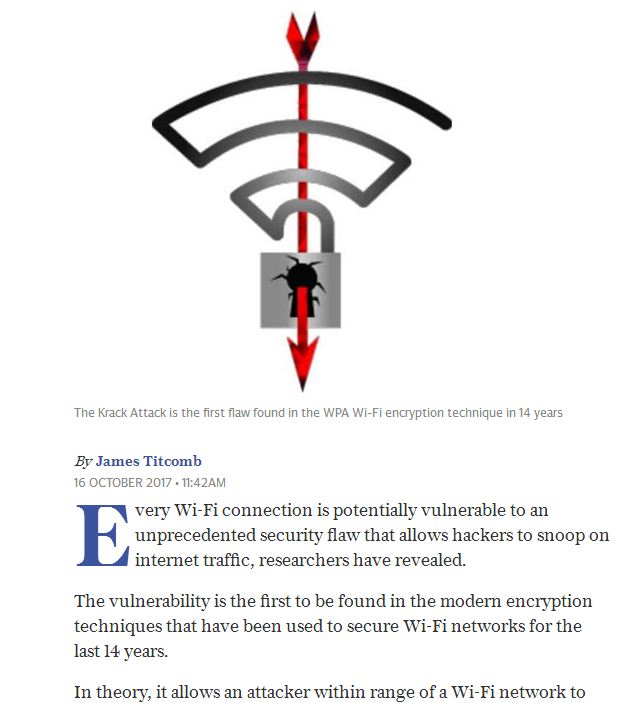If you use wifi in any way, here are six things to note:
- KRACK is an extended security and privacy vulnerability revealed just today. It’s unlikely your wifi is secure yet.
- This is a vary capable bug, so don’t underestimate the seriousness of this matter.
- “The attack works against all modern protected Wi-Fi networks.”
- “It appears almost any device that uses Wi-Fi is affected.”
- You “may want to be wary of using Wi-Fi at all until patches are widely rolled out.”
- “It’s more urgent for general users to patch their personal devices, whether phones, PCs or any smart device, be they watches, TVs or even cars.”

